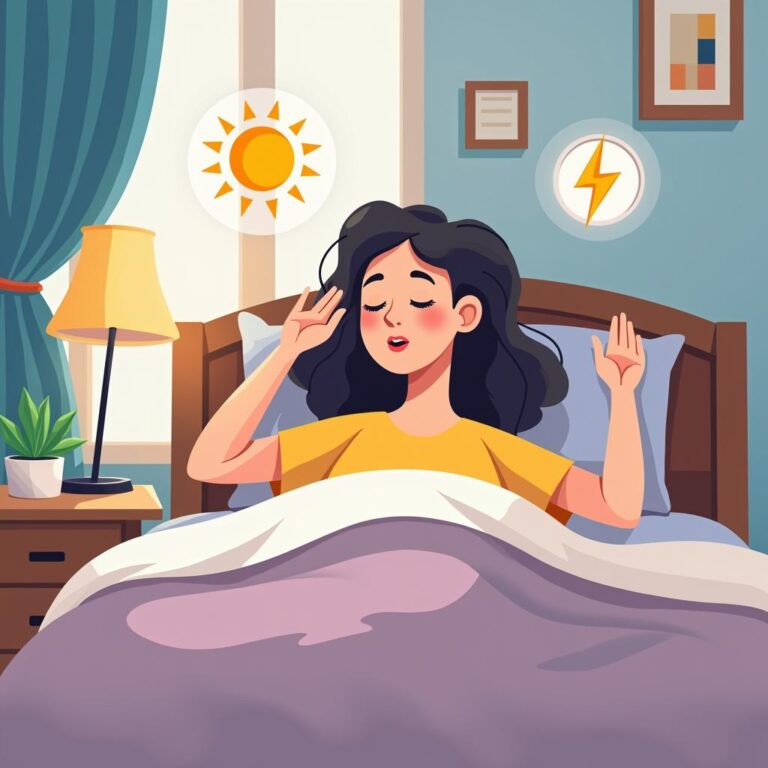In today’s fast-paced world, many professionals find themselves working late into the night. Whether it’s due to tight deadlines, long commutes, or personal commitments, working late can take a toll on your sleep quality. Lack of proper sleep can lead to decreased productivity, mood swings, and a host of health issues. Therefore, it’s essential to learn how to improve sleep quality while working late. This article provides actionable tips and strategies to ensure you make the most of your nighttime rest despite a hectic work schedule.
Understanding Sleep Quality
Before we dive into improvements, let’s talk about what sleep quality means. Good sleep quality involves more than just the duration of sleep. It’s about how well you sleep during that time. Key factors include:
- Sleep Duration: The total time spent asleep.
- Sleep Efficiency: The ratio of time spent asleep to the total time spent in bed.
- Sleep Depth: The restorative nature of sleep cycles.
- Sleep Continuity: The ability to stay asleep uninterrupted.
When working late, it’s vital to optimize these factors to improve overall wellbeing.
Establish a Consistent Sleep Schedule
Although your work hours may vary, try to stick to a consistent sleep schedule as much as possible. Even on days off, maintain a regular bedtime and wake-up time. This consistency helps regulate your body’s internal clock, making it easier to fall asleep and wake up feeling refreshed.
Create a Restful Sleep Environment
Your sleep environment plays a crucial role in the quality of your sleep. To create a conducive sleeping atmosphere, consider the following:
- Darkness: Use blackout curtains or sleep masks to block out light.
- Noise Reduction: Invest in white noise machines or earplugs if external noise is a problem.
- Comfortable Bedding: Ensure your mattress and pillows provide the right level of support.
- Room Temperature: Keep your bedroom cool, ideally between 60-67 degrees Fahrenheit (15-19 degrees Celsius).
Limit Stimulants Before Bedtime
Consuming stimulants like caffeine and nicotine close to bedtime can significantly impact your ability to fall and stay asleep. If you’re working late and need a boost, aim to limit caffeinated beverages to the earlier part of your shift. Instead, opt for herbal teas or calming drinks in the evening.
Implement a Wind-Down Routine
Establishing a pre-sleep ritual can signal your body that it’s time to relax. This could include:
- Reading a Book: Engage with a physical book rather than electronic devices.
- Taking a Warm Bath: A warm bath can help raise your body temperature. When you step out, the rapid cooling can promote sleepiness.
- Practicing Relaxation Techniques: Consider meditation, deep breathing, or gentle yoga to unwind.
Be Mindful of Food Intake
What you eat can affect your sleep quality. Avoid heavy, rich meals right before bed, as they can disrupt digestion and lead to discomfort. Instead, consider lighter options, and incorporate sleep-promoting foods like:
- Almonds: Rich in magnesium, which aids sleep.
- Chamomile Tea: Known for its calming effects.
- Kiwi: Contains serotonin that regulates sleep.
- Fatty Fish: High in Vitamin D and Omega-3s, which may help regulate serotonin levels.
Manage Stress and Anxiety
Stress and anxiety are well-known culprits of sleep disturbances. Working late can increase stress levels due to looming deadlines. To manage stress effectively:
- Journaling: Writing down your thoughts can help clear your mind before bed.
- Practice Mindfulness: Incorporate mindfulness meditation into your routine.
- Regular Exercise: Physical activity has been shown to reduce stress levels and improve sleep.
Limit Screen Time Before Bed
The blue light emitted by screens can interfere with the production of melatonin, the hormone responsible for regulating sleep. If you must work late on screens:
- Use Blue Light Filters: Many devices have settings that reduce blue light exposure in the evening.
- Create a Digital Curfew: Aim to turn off all electronic devices at least 30-60 minutes before bed.
Consider Power Naps
If you find yourself burning the midnight oil, short power naps can provide a boost without disrupting your nighttime sleep. Keep naps to 20-30 minutes to avoid entering deep sleep stages, which can make waking up more challenging.
Stay Hydrated, But Not Too Hydrated
Staying hydrated is essential for overall health, but drinking too much water before bed can lead to frequent trips to the bathroom. Aim to stay hydrated during the day and limit fluid intake in the hours leading up to bedtime.
Know When to Seek Professional Help
If you’ve tried various strategies and continue to struggle with sleep quality while working late, it may be time to consult with a healthcare professional. Sleep disorders such as insomnia or sleep apnea require specialized treatment.
Conclusion
Improving sleep quality while working late isn’t merely about getting more sleep; it’s about optimizing the sleep you do get. By establishing a consistent sleep schedule, creating a restful environment, and adopting healthy habits, you can enhance the quality of your sleep, thus improving your productivity and overall health. Implement these strategies into your routine, and you’ll be on your way to better sleep quality even on the busiest of workdays.







